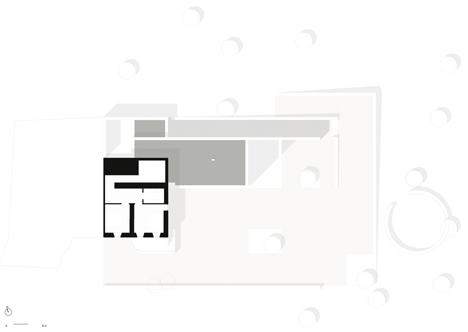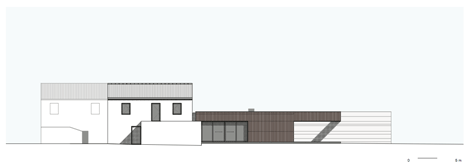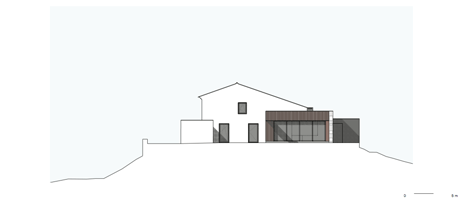Vale da Abelha House by Duarte Pape
Portuguese architect Duarte Pape has combined a long stone wall with folding timber facades in this residential extension in northwestern Portugal (+ slideshow).
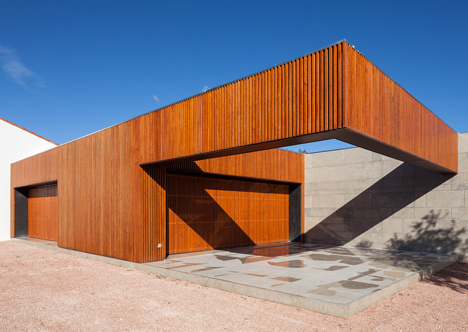
Duarte Pape used timber cladding and blue limestone to extend the traditional Portuguese house located in a tiny rural village called Mação.
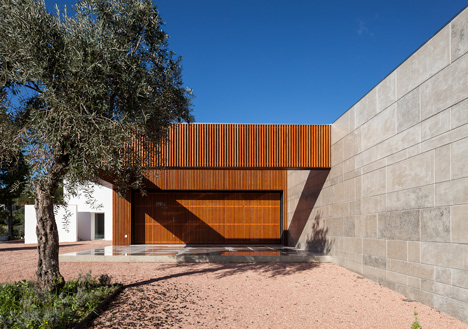
"The goal was to create a connection between the old structure and the surrounding nature," explains the architect.
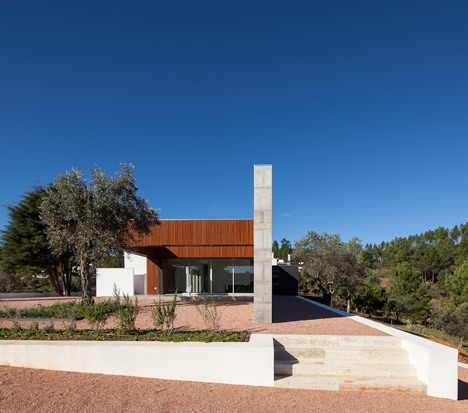
A long stone wall constructed from Portuguese blue limestone Ataija runs the entire length of the extension and stretches out into the surrounding landscape, providing protection from prevailing northerly winds.
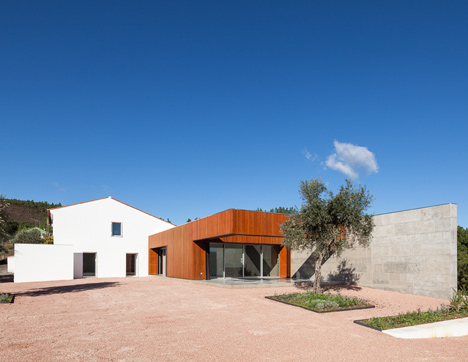
Oriented for maximum sunlight, the south and east facades of the extension are encased in a timber shell with screens that concertina open in front of sliding glass doors.
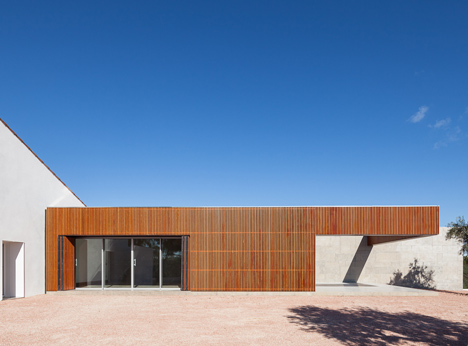
Constructed from American pine, the timber structure extends beyond the building facade forming a chunky frame that overhangs the veranda.
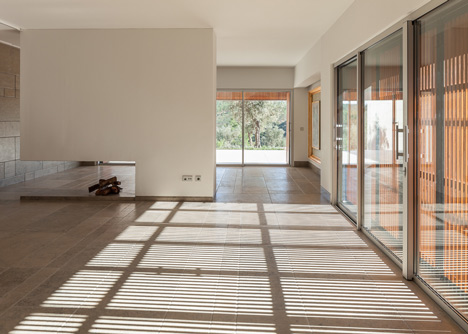
A canopy can be suspended within the void of the frame to create a covered outdoor space.

The blue limestone floor and wall create a uniform backdrop within the interior space, broken up by a central support column that features a small open fireplace.
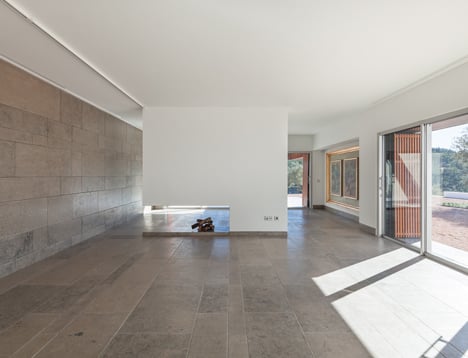
Private bedrooms and bathrooms are contained within the existing building, while the extension houses living areas, a kitchen and transitional spaces.
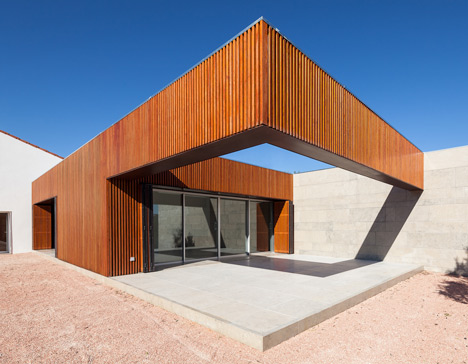
Duarte Pape collaborated closely with local carpenters and stonemasons during the design and construction process, including local sculptor Moisés Preto.
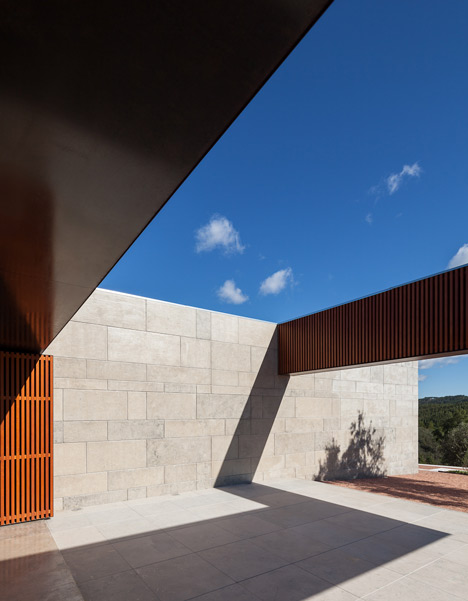
Other timber extensions we've recently featured on Dezeen include a converted chapel with a blackened-timber extension and a timber-clad house extension with curvy towers that point outwards like periscopes.
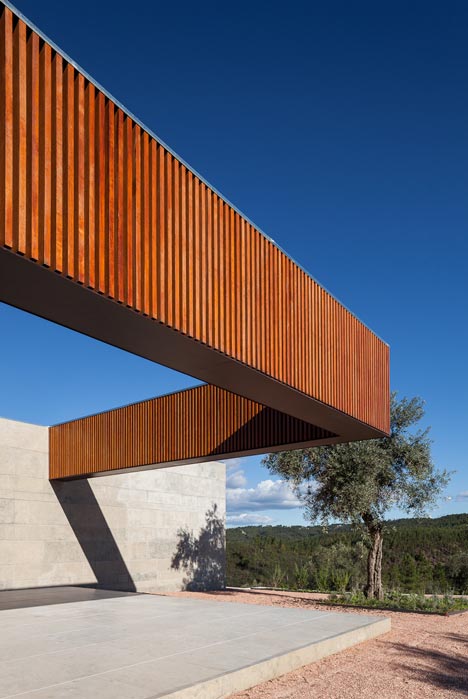
See all our stories about extensions »

Earlier this year we featured a Portuguese house that nestles into the landscape with an angular upper level that follows the incline of the hill.

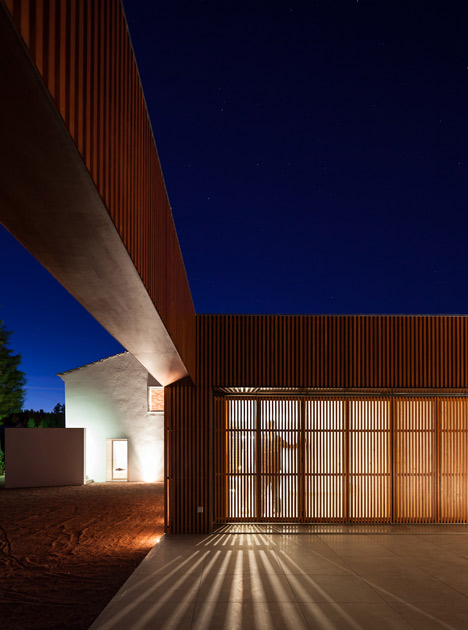
Photography is by Francisco Nogueira.
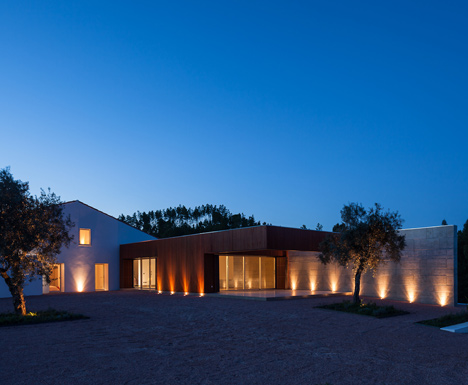
Here's a project description from the architect:
Located in a small village in the Portuguese North West border, the project arises from the necessity of expansion of a preexisting old housing structure, with typical and vernacular identity, and adaptation to new constructive and spatial requirements.
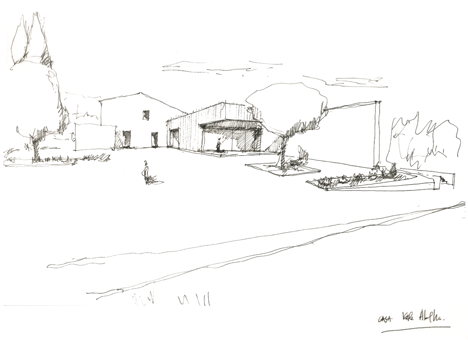
The preexisting structure – ground floor and first floor levels – hosts the private housing program, rooms and bathrooms, which in the constructive issue, sought to recover some of the traditional construction techniques, keeping as well the humble architecture language.
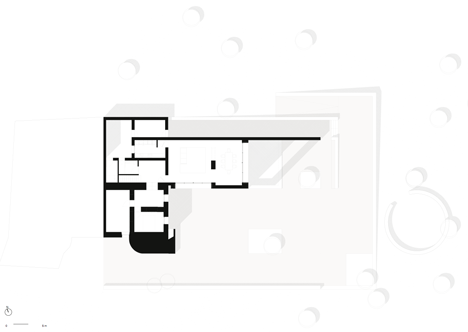
The new expansion volume, receives the social housing program – living rooms, kitchen and transition spaces – takes on to an contemporary language that searches for the better landscape framework, connected with the efficient sunlight orientation, that creates an fine relation between interior & exterior space. The option for the wood and noble material facade, contributes to the low visual impact and good integration to surrounding atmosphere.
